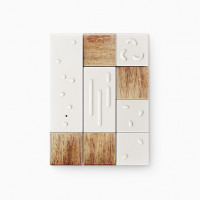How can you encourage healthier food choices in “food deserts,” or areas where access to healthy, affordable food is limited?
A group of graphic design, architecture, international relations and industrial design students from the Rhode Island School of Design (RISD) and Brown University are using human centered design to come up with solutions to this problem through their work with Design for America (DFA). DFA is “a network of interdisciplinary student teams and community members using design to create local and social impact.”
“Food deserts” are a controversial term used to describe neighborhoods that lack supermarkets, but where bodegas and cheap fast food restaurants are often plentiful. Many have tried to address this situation by simply looking to increase the number of supermarkets in such areas.
The RISD & Brown DFA team’s initial research looked into the issues people face in accessing local foods. Through their evaluation of various approaches to increasing access, the group came to a very interesting finding: the mere availability of healthy food does not cause a shift in eating habits. Education about how to prepare healthy, inexpensive meals is key, and making it fun is particularly important when trying to engage and educate youth.
Based on this finding, the team designed a food container with designated sections to ensure healthy meal portions. The container would include a recipe book, using simple, inexpensive ingredients to prove that it’s easy to make healthy meals, even when shopping at a bodega.
The students plan to continue the project by working with local store owners and other Providence-based food initiatives to better understand barriers to healthy eating through their perspectives.
The following video uses RSA Animate style audio narrated illustration to describe their project and next steps. While the quality of the video is just okay and the project is only a first step, it clearly underscores the importance of and opportunity for multi-disciplinary problem solving.
DFA Healthy Food Project from Allison Wong on Vimeo.







